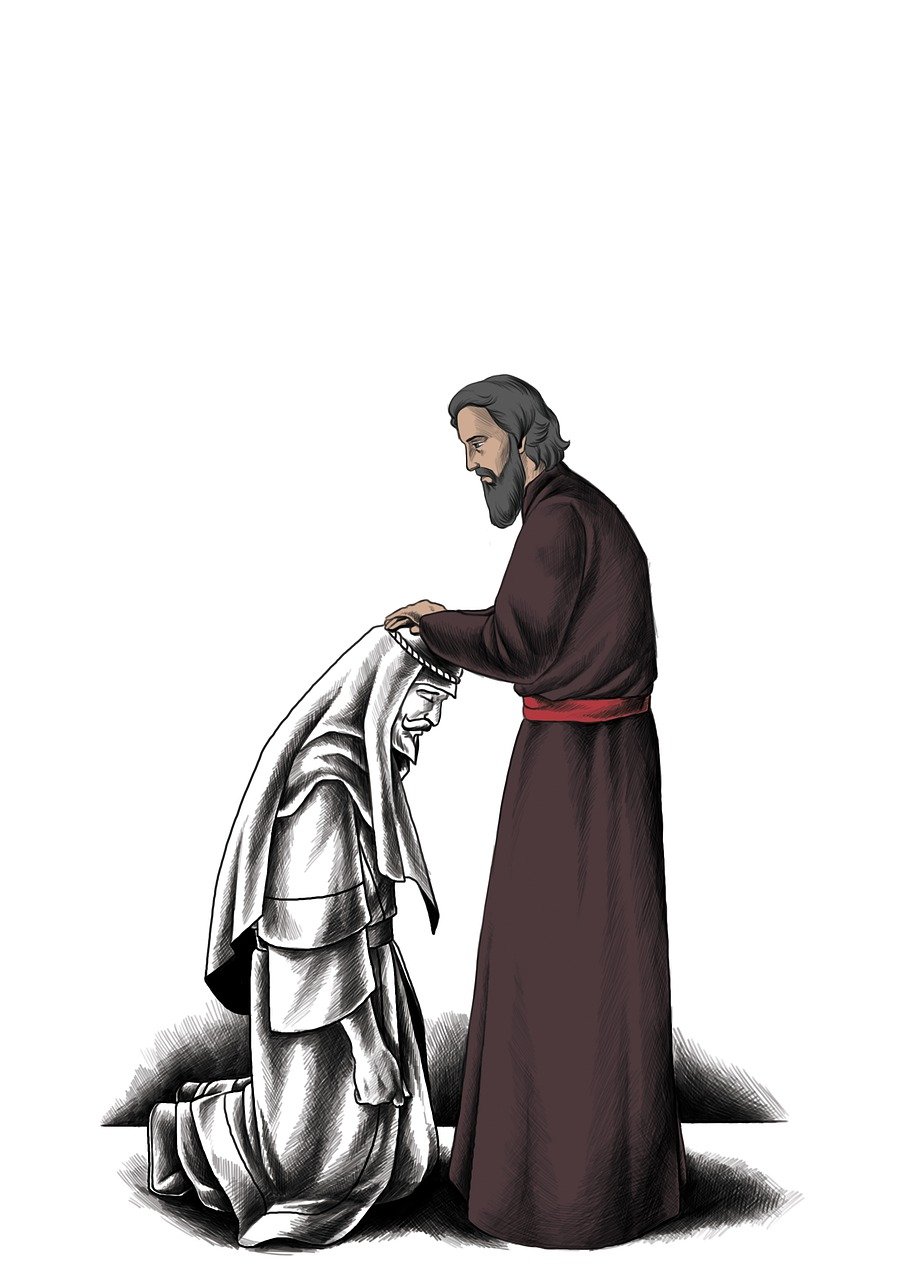
In Christianity, absolution is granted by priests.
Absolution is the act of absolving , a verb that refers to the action of stripping criminal responsibility from someone who has been accused of a certain crime or, when it comes to a civil process, not considering the claims included in a lawsuit .
The concept, whose origin is found in the Latin word absolutĭo, can be used in a more general sense to refer to the practice of leaving someone free of charges or obligations .
Absolution in Christianity and Protestantism
From the perspective of Christianity , absolution consists of forgiving the sins of those who are repentant for their bad behavior. In this way, absolution means cleansing the sinner and giving him a new opportunity without considering the faults he may have incurred.
This religious practice, carried out by priests, is inspired by the pardon that Jesus Christ granted to sinners. The rite consists of the sinner confessing his faults before a priest, who establishes a penance and absolves his faults. Although in principle penance was public, from the Middle Ages onwards priests began to grant absolution in private.
In this specific case, the way for a believer to receive absolution from the priest for the sins he may have committed is for him to go to church and decide to confess individually there. Once he has explained what he committed and appears repentant, the religious will impose a penance with which, in this way, he obtains that aforementioned absolution.
In this sense, we can establish that the parish priest must comply with what is called the secret of confession . A term that expresses that he may not reveal under any circumstances, and even if his life is in danger, what has been made known to him by a person who has made use of his right to individual confession.
On the other hand, Protestants confess through a prayer performed by the entire congregation . After his pronunciation, the pastor announces the absolution.
For all that has been said, we can affirm that there are multiple types of absolution, both at a religious level and in other areas. Sacramental absolution , for example, consists of the freedom and forgiveness that the confessor grants to the penitent .

In law, acquittal implies declaring the innocence of an accused.
The term in law
In the field of law, the use of absolution is also used. In this specific case, and in a general way, we can establish that said term would define a judicial ruling through which it is established that a person is not guilty of the crime or misdemeanor that had been imputed to him, that is, that he He is innocent .
The ruling of such a decision will bring with it, among its main consequences, that this citizen will see the preventive detention sentence to which he could have been subjected ended, the bail that he could have given will be returned to him and that his crimes will be put to an end. the measures that were established to prevent him from fleeing the country.
The acquittal of the claim consists of the resolution of a lawsuit that favors the defendant; The absolution of positions , for its part, consists of the process marked by the action under oath of the litigant in the face of interrogation by the other party involved in the matter.
The acquittal in the instance , likewise, revolves around the pronouncement that is carried out in the sentence when a court or a judge hides behind a procedural exception and decides to refrain from resolving the merits. Finally, a general absolution is one that is granted to a plurality of people.
